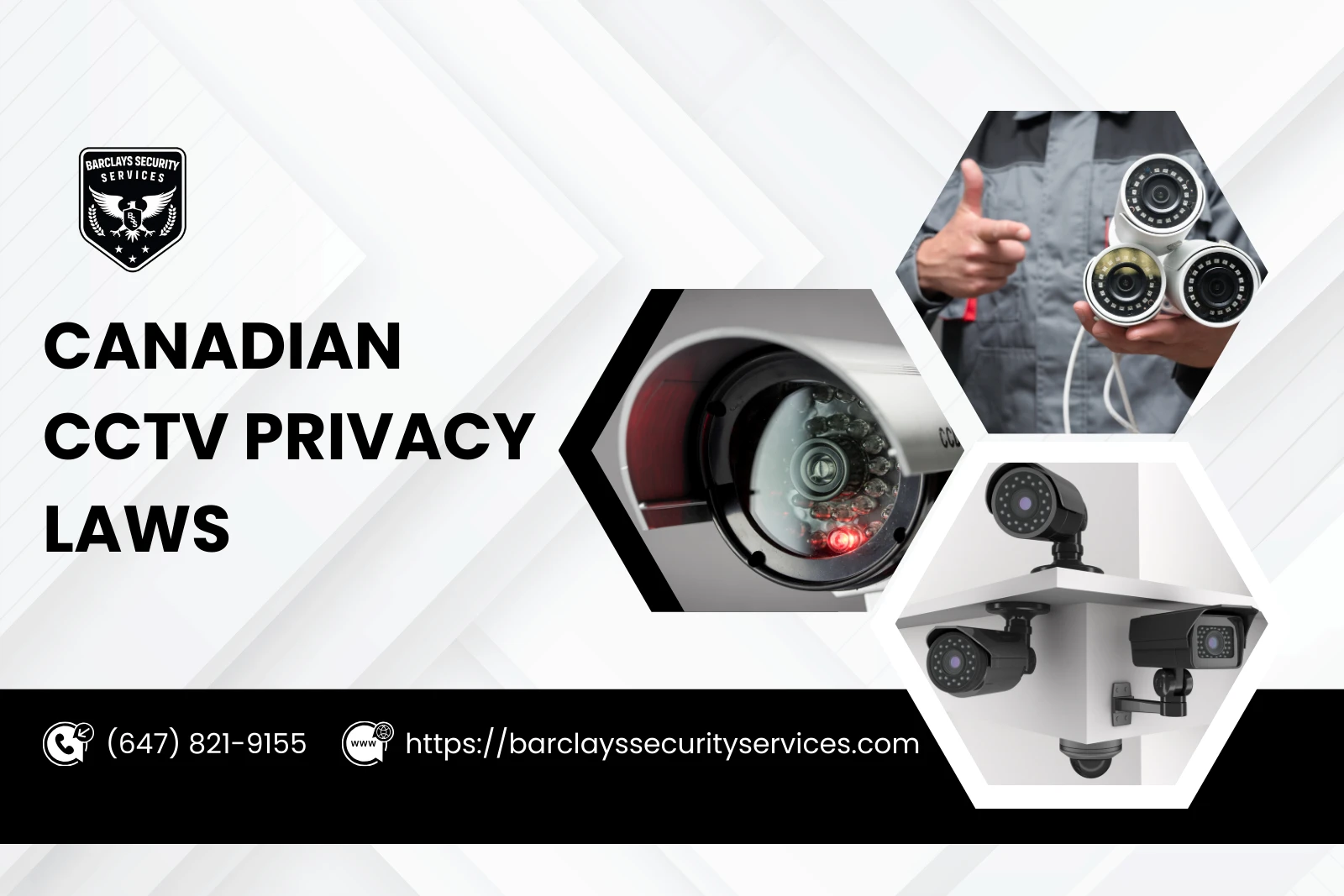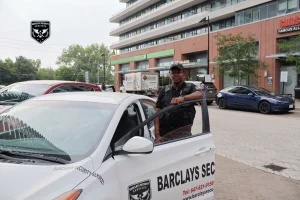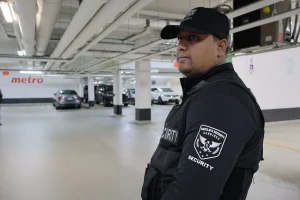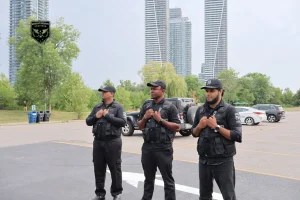Summary
This comprehensive guide explains how Canadian privacy laws-including PIPEDA, PIPA, FIPPA, and provincial regulations-govern the use of CCTV cameras in homes, condos, workplaces, businesses, and public spaces. Whether you’re in Ontario, British Columbia, Quebec, or Alberta, this blog clarifies where and how you can legally install cameras, store footage, notify the public, and avoid violating privacy laws. With official links, sector-specific tips, and real-world examples.
Why Canadians Must Understand CCTV Law in 2025
More Canadians than ever are installing security cameras-especially after a surge in:
- Porch piracy and package theft
- Vehicle break-ins
- Retail store theft and vandalism
- Tenant disputes and condo safety issues
But most people (including landlords, board members, and shop owners) don’t realize that unauthorized surveillance can violate federal and provincial privacy laws, opening the door to lawsuits, regulatory investigations, and reputational damage.
Whether you run a Toronto apartment building or a convenience store in Vancouver, understanding privacy compliance isn’t optional-it’s legal survival.
What Exactly Is Personal Information Under Canadian Law?
Before diving into what’s legal, you need to know what the law protects. In Canada, personal information is any recorded information about an identifiable individual, including:
- Face or body on camera
- License plates
- Employee movements or actions
- Audio of a private conversation
Video recordings that show people in identifiable ways are subject to privacy law. Even if your intent is safety, if you’re capturing and storing personal information-you’re bound by federal or provincial laws.
Breakdown of Canadian Privacy Laws for CCTV
2.1 PIPEDA – Personal Information Protection and Electronic Documents Act
Applies to: All commercial activity in provinces without their own private-sector laws (e.g., Ontario, Manitoba)
Key CCTV obligations:
- Must have a clear, legitimate purpose for surveillance
- Must post visible signage alerting people to cameras
- Must only record what is necessary
- Must give individuals access to footage containing them
- Must have a data retention policy
Read PIPEDA from the Privacy Commissioner of Canada
2.2 PIPA – British Columbia & Alberta’s Private-Sector Law
Applies to: Private organizations in BC and Alberta
Key points:
- Organizations must conduct privacy risk assessments
- Must demonstrate that surveillance is the least privacy-invasive way to achieve your goal
- Footage must be securely stored, encrypted, and only kept for necessary duration
BC OIPC: Video Surveillance in the Private Sector
2.3 FIPPA – Freedom of Information and Protection of Privacy Act
Applies to: Public bodies like municipalities, schools, hospitals
Requires:
- Policy approval for each new camera location
- Privacy impact assessments before implementation
- Annual audit of footage use and access logs
2.4 MFIPPA – Ontario’s Municipal Surveillance Law
Applies to: Municipal institutions (e.g., TTC, libraries, city property)
Requires:
- Limited collection
- Access controls
- Compliance with signage regulations
Information and Privacy Commissioner of Ontario – MFIPPA
2.5 Quebec – Bill 64 / Law 25 (2023–2025 Reforms)
Quebec’s new privacy law now imposes stricter controls than any other province.
Key changes:
- Mandatory privacy officers
- Must destroy data after purpose fulfilled
- Surveillance must be proportional and documented in policy
Commission d’accès à l’information du Québec
Where Can You Legally Place Security Cameras?
| Location | Legal? | Notes |
| Private home (own property) | ✅ | OK as long as cameras stay on your property |
| Condo common areas (lobby, garage) | ✅ | With signage and board approval |
| Inside tenant’s unit | ❌ | Illegal under all privacy laws |
| Bathrooms or changing rooms | ❌ | Always illegal |
| Public streets (by private citizens) | ❌ | Only government agencies allowed |
| Business storefront | ✅ | With signage and limited audio |
| Staff breakroom | ❌ | Considered private space |
| Warehouse/stockroom | ✅ | If purpose is loss prevention or safety |
Audio Surveillance – Heavily Restricted
Under Section 184 of the Criminal Code, it is illegal to intercept a private conversation unless you are a party to it.
That means:
- You cannot record customer conversations at a checkout
- You cannot install cameras with mics in waiting areas
- Even with signage, audio recording is risky unless you collect explicit, written consent
Canada Criminal Code Section 184
What About Smart Cameras, Doorbells, and Cloud Storage?
Smart surveillance systems like Ring, Nest, and Arlo fall under the same rules.
You are still responsible for:
- Where they point (can’t face into a neighbour’s window or public sidewalk)
- Who has access to live feeds or recordings
- How long recordings are stored
- Making sure your system complies with Canadian servers or encrypted cloud providers
Pro tip: Avoid storing surveillance data with US providers that don’t meet Canadian data sovereignty standards.
How Long Can You Keep CCTV Footage?
You may only store footage as long as it’s necessary for its intended purpose.
- 30 days is standard for residential or small retail
- 60–90 days for high-risk commercial areas
- Indefinitely ONLY if an incident occurred and it’s needed for legal or investigative purposes
You must document and communicate this retention policy to all stakeholders.
Real-World Case Studies of Surveillance Violations
Case 1 – Ontario Condo Sued for Unauthorized Hallway Cameras
A condo board in Mississauga installed hallway cameras without notifying owners. A resident filed a complaint under PIPEDA. The board was ordered to remove footage, update signage, and issue an apology.
Case 2 – Small Retailer in BC Fined for Audio Recording
A BC café recorded staff and customers near the cash register, including conversations. They were fined by the OIPC and required to shut down the system and destroy all footage.
Case 3 – Alberta Strata Council Investigated
In 2023, a Calgary condo strata council was investigated for placing a hidden camera in the mailroom. The OIPC ruled this was a gross violation, and the system had to be removed entirely.
Industry-Specific Compliance Guidance
For Condo Boards:
- Get legal advice before any installation
- Notify residents via signage and policy updates
- Don’t allow individual owners to install cameras facing common areas
For Small Businesses:
- Place signs at all entrances
- Don’t record audio
- Create an internal CCTV policy and review annually
For Landlords:
- Never monitor inside rental units
- Keep entryway or garage footage secure and accessible only to property managers
For Schools & Hospitals:
- Must comply with FIPPA
- Must undergo annual privacy audits
- Extra caution when minors are involved
Steps to Implement CCTV Legally in Canada
- Define your purpose – theft prevention? access control?
- Conduct a Privacy Impact Assessment
- Install visible signage with contact information
- Disable audio recording unless explicitly consented
- Limit camera angles to exclude private or irrelevant areas
- Secure storage – encryption, password access, limited login rights
- Set a clear retention schedule – delete old footage automatically
- Allow subject access – individuals can request to view footage they appear in
- Train staff – on privacy rights, consent, and how to handle footage
Need Help Navigating Compliance?
Barclays Security Services offers privacy-compliant, fully licensed CCTV installation and monitoring services for:
- Condo buildings
- Commercial properties
- Retail stores
- Healthcare facilities
- Warehouses and industrial yards
Based in Toronto, serving Vaughan, Scarborough, Markham, and the entire GTA.
Call now for a compliance-focused security audit: +1 647-821-9155
Visit: www.barclayssecurityservices.com
FAQS
Do Canadian privacy laws apply to both public and private CCTV systems?
Yes. Canadian privacy laws cover both public and private CCTV systems to ensure that individuals’ privacy rights are protected.
What happens if businesses don’t comply with CCTV privacy laws?
Failure to comply can result in legal penalties, financial fines, and serious damage to a company’s reputation.
How often should businesses carry out Privacy Impact Assessments for CCTV systems?
Organizations are encouraged to conduct Privacy Impact Assessments on a regular basis—particularly when introducing a new CCTV system or making major modifications to an existing one.
Can businesses use CCTV footage for reasons beyond security?
CCTV recordings should primarily be used for security purposes. Any other use must comply with privacy regulations to avoid legal risks.
Are changes to Canadian privacy laws for CCTV expected soon?
Future updates to legislation are possible, but the exact changes will depend on upcoming government decisions and policy developments.
What should businesses do if police or government agencies request CCTV footage?
Authorities may request footage without a warrant, and it is up to the business to decide whether to provide it voluntarily. However, if a production order or warrant is issued, compliance is mandatory. In cases where a crime has occurred, sharing relevant footage with law enforcement is recommended.
Are security cameras an invasion of privacy in Canada?
Not automatically. Security cameras are legal, but they must comply with Canadian privacy laws. If a camera records areas where people reasonably expect privacy (like inside homes, bathrooms, or bedrooms), it could be considered an invasion of privacy.
How do I deal with my neighbor’s security cameras?
If you feel your neighbor’s camera is pointing into your private space (like your backyard or windows), first talk to them directly. If that fails, you can file a complaint with your provincial privacy commissioner or pursue legal action for harassment or invasion of privacy.
Do you have to tell people you have a security camera?
Yes, in many cases. Businesses must post signs informing people that surveillance is in use. For private homeowners, it’s not strictly required by law, but it’s strongly recommended to avoid disputes.
Are security cameras an invasion of your privacy?
Yes, if they capture video or audio of you in areas where you have a reasonable expectation of privacy. If they only capture public spaces (like sidewalks or driveways), it usually isn’t considered a violation.
What will blind a security camera?
Strong light sources, lasers, or physical obstructions can block or blind a camera. However, tampering with someone else’s camera is illegal and could result in criminal charges.
How to stop CCTV from tracking you?
In public, there’s little you can do since cameras in public spaces are legal. However, privacy laws prevent misuse of the footage. In private areas, you can request removal, complain to privacy authorities, or take legal action if you’re being recorded without consent.
Can I block my neighbour’s camera?
Physically blocking or damaging a neighbor’s camera is illegal. Instead, you can add privacy screens, tall fences, or landscaping to block the camera’s view without interfering with the device itself.
Can I sue someone for recording me without my permission in Canada?
Yes. If someone records you in a private setting without consent, you can sue for invasion of privacy. Canadian courts have recognized this as a valid claim under “intrusion upon seclusion.”
Is it legal to have a camera pointed at a neighbor’s house in Canada?
It’s generally legal if the camera is used for security and not deliberately to spy on your neighbor. However, if it captures more of your neighbor’s private space than necessary, it could violate privacy laws.
How to block a neighbor’s security camera?
The legal way is to install fences, screens, or outdoor blinds that block the view. Do not tamper with the camera directly—it’s illegal.
What are the rules for security cameras in Canada?
Businesses must post signs notifying people about CCTV.
Cameras should not record private areas.
Footage should be used only for security purposes.
Storage and access must follow federal/provincial privacy laws.
Who can view security camera footage?
Only the owner of the system and authorized individuals should have access. Businesses must limit access to trained staff. Individuals cannot legally share footage without a valid reason (e.g., reporting a crime).
Do I have to tell people I have CCTV?
For businesses, yes—it’s mandatory. For homeowners, it’s not legally required but is considered best practice to avoid disputes and potential complaints.
What are the laws around CCTV?
CCTV use in Canada is governed by privacy laws such as the Personal Information Protection and Electronic Documents Act (PIPEDA) federally, and provincial acts like Ontario’s Privacy Act or BC’s Personal Information Protection Act (PIPA). The key principle is that surveillance must be reasonable, necessary, and not excessively invasive.





